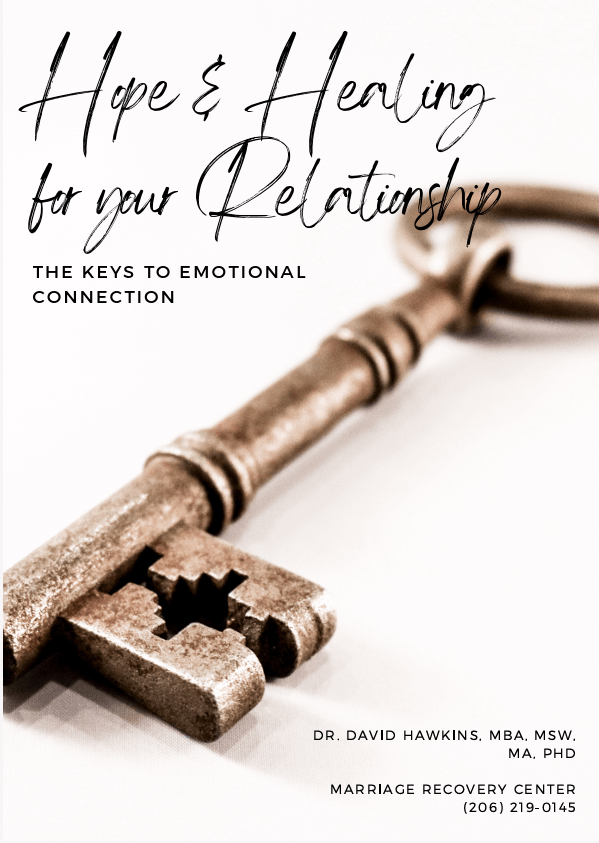Narcissistic Personality Disorder or Narcissistic Personality Traits? Which one. The difference is HUGE though both are VERY serious. Dr. David B. Hawkins, Licensed Clinical Psychologist and Director of The Marriage Recovery Center helps you understand that there are men who have Narcissistic Personality Disorder and those that have Narcissistic Personality Traits. He helps you to understand the difference and to make good decisions so that you can learn if an intervention is possible with your man as well as to consider the possibility that it may not be possible.
Narcissistic Personality Disorder vs Narcissistic Personality Traits
Narcissism is a topic that has gained significant attention in recent years, with numerous discussions focused on distinguishing between Narcissistic Personality Disorder (NPD) and narcissistic personality traits. It is essential to understand the differences between the two and the potential impact they can have on relationships. While NPD is often viewed as a severe disorder, it is crucial not to underestimate the damaging effects of narcissistic personality traits.
Narcissistic Personality Disorder: An Overview
Narcissistic Personality Disorder (NPD) is a mental health condition characterized by an inflated sense of self-importance, an excessive need for admiration, and a lack of empathy for others. Individuals with NPD often exhibit a grandiose sense of self, an intense desire for attention and validation, and a tendency to exploit others to fulfill their own needs.
NPD is considered a severe and challenging condition to treat. People with NPD typically struggle with accepting responsibility for their actions, are resistant to change, and lack insight into their behavior. They tend to exhibit a pattern of manipulative and destructive behavior that can severely impact their relationships.
Narcissistic Personality Traits: A Spectrum of Behavior
On the other hand, narcissistic personality traits encompass a wide range of behaviors and characteristics that fall on a spectrum. It is important to note that having narcissistic traits does not necessarily mean someone has NPD. Instead, it indicates that certain narcissistic tendencies or behaviors are present to varying degrees.
Narcissistic personality traits can manifest in different ways, such as a need for admiration, an inflated sense of self, a sense of entitlement, and a lack of empathy. These traits, even in milder forms, can cause significant damage to relationships. They can lead to manipulation, blaming others, rationalization of one’s behavior, and an inability to take responsibility for one’s actions.
The Impact on Relationships
In a healthy relationship, open communication, empathy, and mutual support are vital. However, when one partner exhibits narcissistic personality traits, even in mild to moderate forms, it can disrupt the harmony and cause chaos within the relationship. Traits such as shifting blame, justifying behavior, and refusing to take responsibility can lead to emotional distress, confusion, and frustration for the partner.
A person with narcissistic personality traits may struggle to engage in healthy conflict resolution, empathize with their partner’s feelings, or work collaboratively to address relationship issues. Instead, their behavior tends to revolve around self-centeredness and a need to maintain control and power.
Treatment Options
While treating individuals with full-fledged Narcissistic Personality Disorder (NPD) can be challenging, those with milder narcissistic personality traits may respond positively to a combination of individual and couples therapy. Seeking help from a skilled clinician who understands the complexities of narcissism is crucial in facilitating intervention and promoting accountability.
However, it is important to acknowledge that holding someone with narcissistic traits accountable can be met with resistance and pushback. The force of their personality and their resistance to change may present significant obstacles. It may require a breakdown in the relationship or significant intervention to achieve a breakthrough and encourage personal growth.
Conclusion
Narcissism is a multifaceted topic that encompasses both Narcissistic Personality Disorder (NPD) and narcissistic personality traits. It is essential to recognize the distinctions between the two and understand that even mild narcissistic traits can have a detrimental impact on relationships. Seeking support from professionals who specialize in narcissism can provide guidance and help determine the most effective course of action.
Remember, this is not a black-and-white issue. Narcissism exists on a spectrum, and it is crucial to assess the severity of the traits and the potential for change. By gaining a deeper understanding of narcissism and its effects, individuals can make informed decisions about their relationships and work toward healthier, more fulfilling connections.
To learn how we can help, reach out to us at (206) 219-0145 or info@marriagerecoverycenter.com to speak with a Client Care Specialist
Also read: How Does a Narcissist Think?
About Dr. Hawkins:
The internet is inundated with hyperbole and misinformation about narcissism, leaving many people confused and hopeless. Get the facts on narcissism and emotional abuse from someone who has been researching, writing about and treating narcissism and emotional abuse for over a decade.
Dr. Hawkins is a best-selling author and clinical psychologist with over three decades of experience helping people break unhealthy patterns and build healthier relationships.
He is the founder and director of the Marriage Recovery Center and the Emotional Abuse Institute which offers education, training and counseling for people who want to break free of, and heal from, emotional abuse. Whether the perpetrator of the abuse is your spouse, partner, parent, boss, friend or family member, we offer practical advice for anyone trapped in a toxic, destructive relationship.
In addition to narcissism & emotional abuse, you’ll learn about the lesser known forms of abuse, including covert abuse, reactive abuse, spiritual abuse, secondary abuse, relationship trauma and much more.








